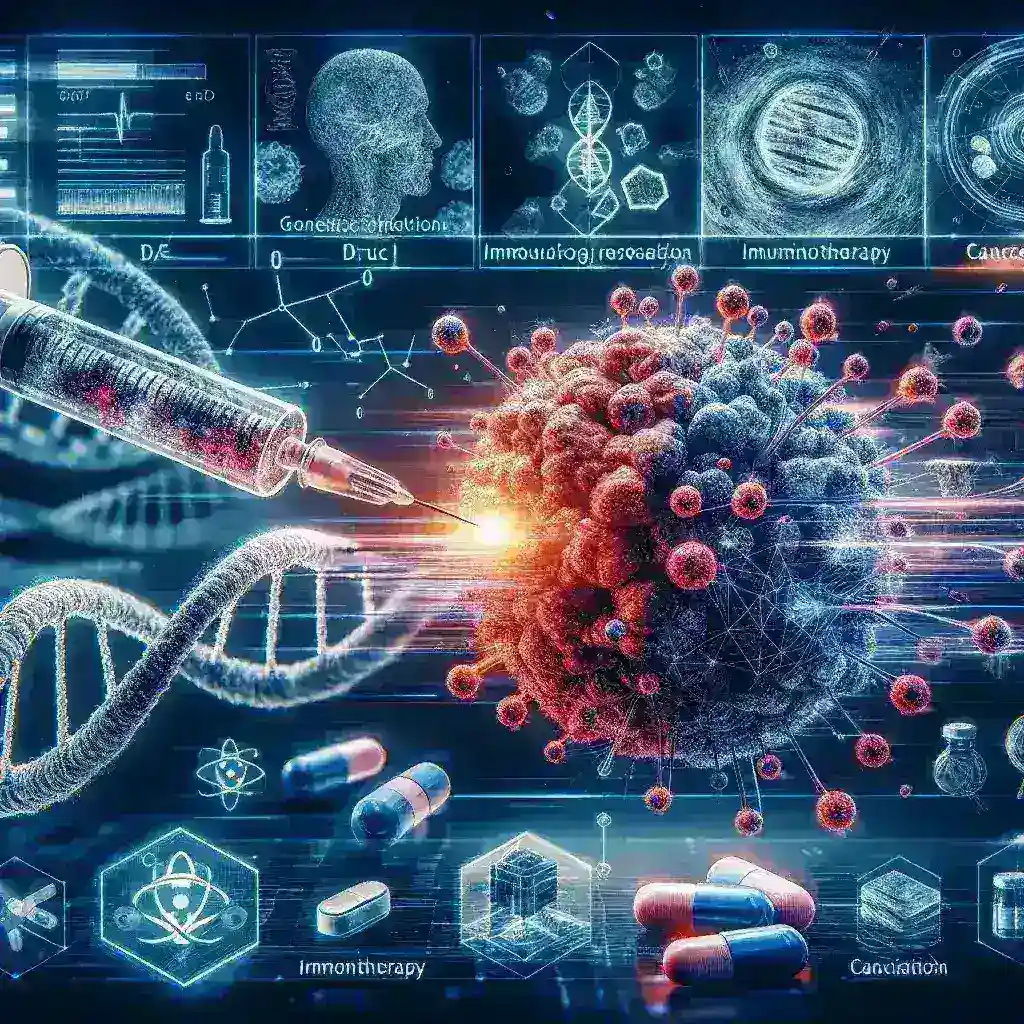Introduction
The landscape of cancer treatment is undergoing a seismic shift with the advent of artificial intelligence (AI). Among the various applications of this technology, AI-assisted drug discovery platforms are paving the way for innovative approaches to cancer immunotherapy research. This article delves into the transformative role of AI in expediting the drug discovery process, particularly in the field of cancer immunotherapy.
Understanding Cancer Immunotherapy
Cancer immunotherapy harnesses the body’s immune system to combat cancer cells. Unlike traditional methods like chemotherapy and radiation, immunotherapy aims to boost the immune response against tumors, leading to more targeted and less harmful treatment options. The growing prevalence of cancer has necessitated the development of more effective therapies, making the integration of AI in this field not just beneficial but essential.
What is AI-Assisted Drug Discovery?
AI-assisted drug discovery involves utilizing machine learning algorithms and data analysis to streamline the process of discovering new drugs. By analyzing vast datasets, these platforms can identify potential drug candidates, predict their effectiveness, and even assess side effects before clinical trials begin. This approach significantly reduces the time and cost associated with traditional drug discovery methods.
The Role of AI in Accelerating Cancer Immunotherapy Research
The intersection of AI and cancer immunotherapy represents a groundbreaking frontier in medical research. Here’s how AI is accelerating the pace of discovery:
- Data Analysis: AI platforms can sift through enormous datasets from clinical trials, patient records, and scientific literature to identify trends and correlations that would be impossible for human researchers to detect.
- Predictive Analytics: Machine learning models can predict how different immunotherapeutic agents will interact with various cancer types, allowing for personalized treatment plans tailored to individual patients.
- Biomarker Identification: AI can help identify new biomarkers that indicate a patient’s potential response to immunotherapy, enhancing the selection of candidates for specific treatments.
- Accelerated Clinical Trials: By simulating clinical outcomes, AI can streamline trial designs and patient recruitment, leading to faster approvals for promising therapies.
Historical Context of AI in Drug Discovery
The incorporation of AI in drug discovery is not entirely new; it has roots dating back to the early 2000s. However, the technological advancements in computing power and data storage have transformed the field. Initially, AI was mainly used for data mining and managing laboratory operations. Today, it has evolved to play a pivotal role in predictive modeling, thereby revolutionizing how drugs are developed.
Key Milestones
- In the 2010s, several startups emerged, focusing on AI-driven drug discovery, marking the beginning of specialized AI platforms.
- In 2020, the FDA approved its first AI-generated drug, illustrating the growing acceptance of AI in pharmaceutical development.
- By 2023, AI platforms had become integral to major pharmaceutical companies, representing a significant shift in research methodology.
Current AI Platforms in Cancer Immunotherapy
Several AI-assisted drug discovery platforms are making waves in cancer immunotherapy research:
- Atomwise: Using deep learning algorithms to predict how different compounds will bind to proteins, Atomwise accelerates the discovery of new drug candidates.
- BenevolentAI: This platform focuses on using AI to identify new uses for existing drugs, particularly in oncology.
- Insilico Medicine: Known for its work in generative drug design, Insilico uses AI to create novel compounds specifically for cancer therapy.
- Deep Genomics: This platform employs AI to analyze genetic data, uncovering potential therapeutic targets for cancer immunotherapy.
Pros and Cons of AI in Drug Discovery
Pros
- Efficiency: AI significantly reduces the time required for drug discovery, allowing researchers to focus on rapid development and deployment.
- Cost-effective: By streamlining processes and reducing trial-and-error in drug identification, AI minimizes research costs.
- Precision: AI enables the identification of highly specific treatment options tailored to individual patient profiles.
Cons
- Data Quality: The efficacy of AI depends heavily on the quality and diversity of the data used for training models.
- Interpretability: Complex AI models can often act as black boxes, making it difficult for researchers to understand how predictions are made.
- Regulatory Challenges: The integration of AI into drug discovery faces numerous regulatory hurdles that can slow down progress.
Future Predictions for AI in Cancer Immunotherapy
The future of AI in cancer immunotherapy appears promising. With continuous advancements in AI technologies and an increasing understanding of cancer biology, the potential for discovering novel immunotherapeutic agents is vast. Experts predict the following trends:
- Integration of Genomics: As genomic sequencing becomes more affordable, the integration of genetic data with AI platforms will enhance the personalization of immunotherapy.
- Collaborative Approaches: Increased collaboration between AI companies and pharmaceutical firms will foster innovative solutions to complex medical challenges.
- Real-time Data Utilization: The ability to analyze real-time patient data will enable more dynamic and responsive treatment strategies.
Conclusion
AI-assisted drug discovery platforms are revolutionizing cancer immunotherapy research, making it more efficient, precise, and personalized. While challenges remain, the future holds great promise as we witness the convergence of technology and medicine. The ongoing collaboration between researchers and AI experts will undoubtedly yield breakthroughs that could redefine cancer treatment and improve patient outcomes.

